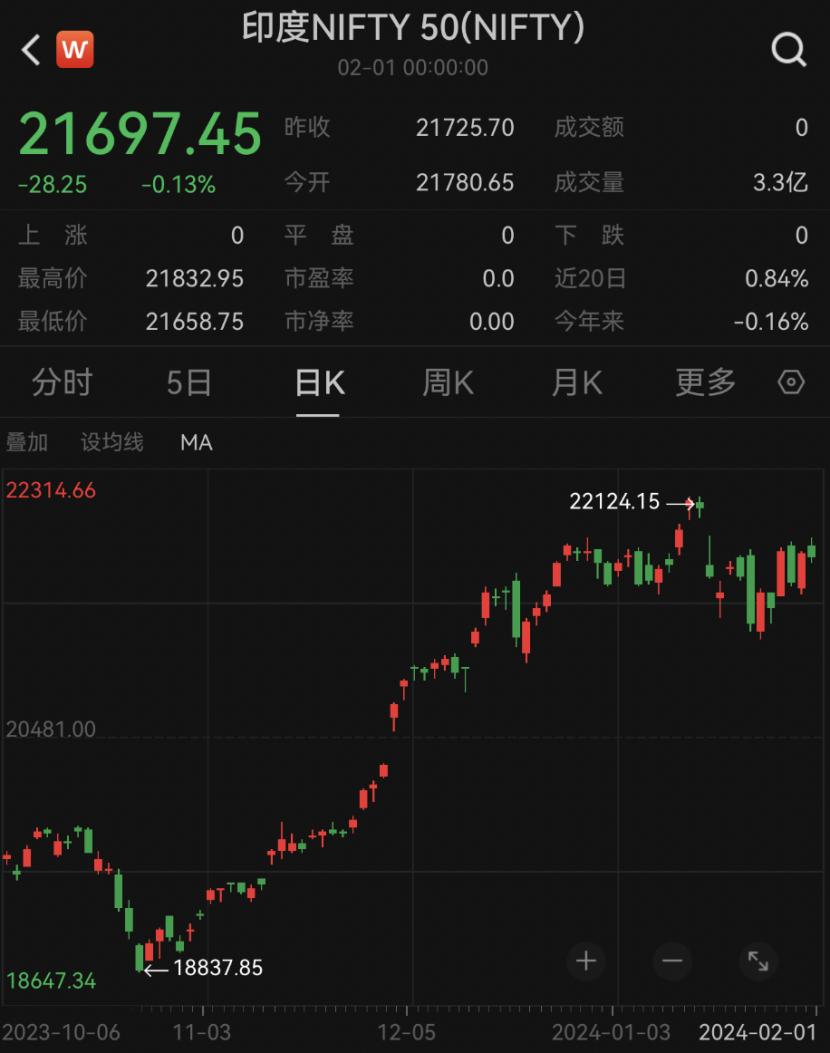Sudden! Biden signed, the United States announced: sanctions!

Great news came from the situation in the Middle East.
First of all, the United States suddenly shot and announced sanctions. On February 1, local time, US President Biden signed an executive order against Israeli Jewish settlers in the West Bank. On the same day, the US government announced sanctions against four Jewish settlers who attacked Palestinian civilians. Reuters reported that this shows that Biden’s government is "increasingly dissatisfied" with the policies of Israeli Prime Minister Benjamin Netanyahu.
In addition, the latest news said that Hamas and Israel have reached an agreement on the "substance" of an agreement, according to which the remaining civilian hostages held in Gaza will be released in exchange for a 40-day ceasefire. At the crucial moment, US Secretary of State Anthony Blinken will visit the Middle East again next week with a view to promoting a ceasefire between Israel and Hamas.
At the market level, Japanese retail investors suddenly poured into the Indian stock market. On February 2, data compiled by Bloomberg showed that in January this year, the total assets of Japanese domestic investment trusts focusing on Indian stocks increased by 11%, reaching 237 billion yen (about RMB 11.5 billion). Analysts pointed out that this may reflect that India has become one of the most popular emerging stock markets in Japan. As one of the regions with the greatest economic growth potential, Indian stock market is attracting more and more international funds.
Biden signed
On February 2, the Global Times reported that US President Biden signed an executive order on February 1 against Israeli Jewish settlers in the West Bank. On the same day, the US government announced sanctions against four Jewish settlers who attacked Palestinian civilians.
Reuters reported that this shows that Biden’s government is "increasingly dissatisfied" with the policies of Israeli Prime Minister Benjamin Netanyahu.
Since the current round of Palestinian-Israeli conflict broke out in October last year, although the large-scale conflict between the two sides took place in the Gaza, in the West Bank, some ultra-Jewish settlers often attacked Palestinian civilians, resulting in casualties.
Biden signed the above executive order during his visit to Michigan. He said that the violence of ultra-Jewish settlers in the West Bank "has reached an intolerable level, posing a serious threat to peace, security and stability".
According to reports, the proportion of Arab voters in Michigan is quite high. In the last presidential election year in 2020, 59% of Arab voters in the United States supported Biden. According to a poll in October last year, this proportion dropped to 17% after the current Palestinian-Israeli conflict broke out because of favoritism towards Israel.
Jack sullivan, Assistant to the President of the United States for National Security Affairs, said that according to this decree, the US government will impose financial sanctions and visa restrictions on individuals who attack or intimidate Palestinians and seize their property.
Sullivan said that violence by Jewish settlers against Palestinian civilians poses a serious threat to peace, security and stability in the West Bank, Israel and even the Middle East, and threatens the national security and foreign policy interests of the United States.
Subsequently, the State Council announced that it would sanction four Jewish settlers who attacked Palestinian civilians in the West Bank since the outbreak of the current Palestinian-Israeli conflict, freeze their assets in the United States, prohibit them from entering the country, and prohibit them from doing business with American citizens or enterprises. The US disclosed the identities of these four people and the violence involved. According to reports, this is only the first round of sanctions.
US Secretary of State Anthony Blinken will visit the Middle East again next week with a view to promoting a ceasefire between Israelis and Palestinians in Islamic Resistance Movement (Hamas).
Big news in the Middle East
On February 2nd, a Qatari official said that Hamas and Israel had reached an agreement on the "substance" of an agreement, according to the British Times website. According to the agreement, the remaining civilian hostages held in Gaza will be released in exchange for a 40-day ceasefire.
The report quoted the official as saying that a solution may be reached within a few weeks. The Qatari and Egyptian mediators hope that this momentum can end the war, negotiate the governance of Gaza and reach a long-term solution to the Palestinian-Israeli conflict.
Qatar Al Jazeera quoted a spokesman for the Ministry of Foreign Affairs of Qatar as saying: "The two sides have reached an agreement on the substance that may guide the upcoming humanitarian ceasefire, and we hope to reach an agreement within a few weeks."
An Hamas official said that a delegation sent by the organization was visiting Egypt to discuss the details of the proposal. It wants assurances to end the war.
According to reports, the agreement negotiated in Paris envisages a 40-day ceasefire, during which Hamas will release the remaining civilians among the more than 100 hostages it has taken. The next stage involves the release of Israeli soldiers and the return of the bodies of dead hostages.
Israeli Prime Minister Benjamin Netanyahu has said that the war will not end unless Hamas is ousted in Gaza, but Washington has been pressing him to end the fighting.
Japanese retail investors poured in like crazy.
The latest data shows that Japanese retail investors are flooding into the Indian stock market.
On February 2nd, data compiled by Bloomberg showed that in January this year, the total assets of domestic investment trusts focusing on Indian stocks increased by 11%, reaching 237 billion yen (about RMB 11.5 billion). Considering the appreciation of Indian stocks in Japanese yen last month, the actual inflow of these Indian stock funds was about 140 billion yen. In contrast, funds focusing on Japanese stocks had almost no net inflow during the same period.
Since 2023, Japan’s stock market has suddenly staged a super bull market, and the Nikkei 225 index has been rising steadily, with a cumulative increase of over 28% for the whole year. Since 2024, the hot market of Japanese stocks has continued, with the Nikkei 225 index increasing by 7.5% during the year. However, the voice of bad singing has appeared in the market one after another, and some people in the industry have reminded us to "act cautiously" in the Japanese stock market.
In contrast, the Indian stock market fluctuated at a high level in January 2024, and the Nifty 50 index fell slightly by 0.16% during the year.

The crazy influx of Japanese retail investors into Indian stock market may reflect that India has become one of the most popular emerging stock markets in Japan.
Data compiled by the media also show that, considering net purchases and asset prices, India’s stock holdings increased more than any other developing economy in 2023.
Analysts pointed out that as one of the regions with the greatest economic growth potential, the Indian stock market is attracting more and more international funds, and the interest of these funds is more concerned with the whole of India than individual companies.
The latest report released by the Indian Ministry of Finance pointed out that India is expected to achieve an annual growth rate of 7% in fiscal year 2024 and fiscal year 2025; It is predicted that by 2027, India will become the third largest economy in the world, surpassing Japan and Germany.
S&P Global Rating predicted that India would remain the fastest growing major economy in the next three years.
Another reason why Japanese retail investors flocked to the Indian stock market may be the tax exemption policy for investment accounts implemented in Japan this year.
At the beginning of this year, the Japanese government’s new "Small Investment Non-tax System" (NISA) was officially implemented. The coverage of the new NISA will be further expanded and the tax exemption will be made permanent. Among them, the upper limit of tax exemption for investment in growth NISA is extended to 2.4 million yen, and that for regular investment NISA is extended to 1.2 million yen.
Analysts believe that the new NISA will play a certain role in shifting personal financial assets from savings to investment and helping the stock market.
Original title: "Sudden! Biden signed, the United States announced: sanctions! 》
Read the original text